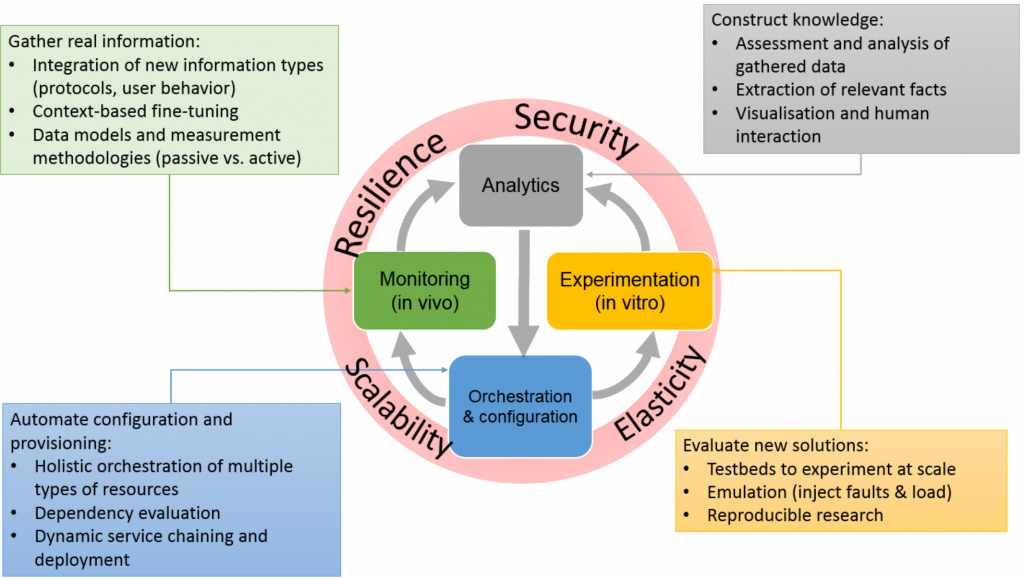RESIST ambition is to make large-scaled networked systems more secure and scalable, leveraging resource elasticity and system resilienceRESIST is a joint team between Inria and Université de Lorraine, within UMR 7503 Loria, a research unit common to CNRS, Université de Lorraine and Inria.
Overview
The RESIST project aims at designing, implementing and validating novel models, algorithms and tools to go towards elastic and resilient networked systems so as to enhance their scalability and security, assuming users, applications and devices whose volume and heterogeneity will continue to increase. Softwarization of networks and data analytics are key enablers to design intelligent methods to orchestrate – i.e. configure in a synchronized and distributed manner – both network and system resources. Intelligent orchestration will leverage relevant data analyzed for decision-making using data analytics. Input data reflecting the past, current and even future (predicted) states of the system are used to build relevant knowledge. Two approaches will be pursued to generate knowledge and to validate orchestration decisions. First, a running system will be monitored in vivo. Second, in vitro experimentation in a controlled environment (simulators, emulators and experimental platforms) will be leveraged to reproduce a running system with a high accuracy and under different hypotheses. Monitoring and experimentation will also be steered and configured through orchestration according to the two intertwined loops.H2Classifier: a new method to identify user searches over HTTP/2 webservices
While encrypted web must ensure confidentiality of exchanged data, there is also a need for network monitoring to detect illicit or illegal activities. We built a new method that is able to detect pre-estbalished user actions (user searches) over some of popular web services: Google, Amazon, Instagram…. Want to know…


